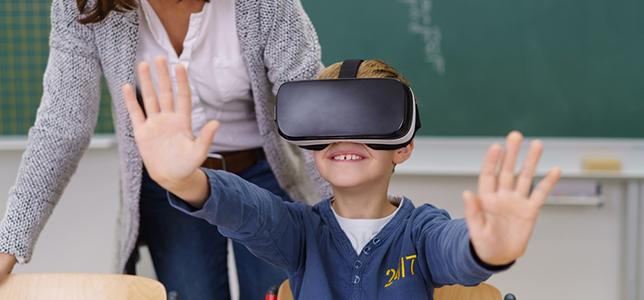Transform Learning with Virtual Field Trips: Explore New Worlds Without Leaving the Classroom
Imagine stepping into a rainforest, exploring outer space, or touring the pyramids—all without ever leaving your classroom. Virtual field trips are transforming education, allowing students and teachers to experience immersive learning journeys from anywhere. In this guide, we’ll dive deep into how virtual field trips can revolutionize teaching and learning, their benefits, practical tips for implementation, and real-world success stories.
What Are Virtual Field Trips?
Virtual field trips are online experiences that enable students to explore locations, environments, and events in real-time or via pre-recorded tours. Using technology such as interactive videos, VR headsets, 360-degree photos, livestreams, and high-definition images, teachers can transport learners to places that might or else be unreachable due to cost, logistics, or distance.
- Accessible – Students can join from any location with an internet connection.
- interactive – Many virtual field trips offer live chats, quizzes, and activities for deeper engagement.
- Customizable – Experiences can be tailored to curriculum objectives and student interests.
Why Choose Virtual Field Trips? Key Benefits
- Global Exploration: Give students access to cultural sites, museums, parks, and more—virtually anywhere in the world.
- cost-Effective: Eliminate travel expenses, permission slips, and logistical headaches.
- Inclusive Learning: Make educational adventures accessible to all students, regardless of physical or financial constraints.
- Enhanced Engagement: Interactive elements spark curiosity and boost participation.
- Safe & Flexible: experience new places safely, with the ability to pause, replay, and discuss.
How Virtual Field Trips Transform the Modern classroom
The integration of virtual field trips empowers educators to creatively engage students. from science lessons in real ecosystems to history classes set in ancient cities, virtual experiences make learning memorable and meaningful.
Enhanced Curriculum Connections
- Science: Tour NASA, aquariums, or natural reserves.
- History: Visit ancient landmarks and museums.
- Art & Culture: Explore world-renowned galleries and heritage sites.
Real-Time interactivity
- Live Q&A sessions with experts and guides.
- Collaborative group tasks that foster teamwork and communication skills.
- Instant feedback through quizzes, polls, and discussions.
Practical Tips for implementing Virtual Field trips
- Select Reputable Platforms: Choose trusted sources for virtual tours. Consider using sites like Google Arts & Culture, Discovery Education, NASA, National Geographic, and Smithsonian Learning Lab.
- Align with Curriculum Goals: Pick trips that enhance lesson objectives, ensure clear learning outcomes, and tie into assessment strategies.
- Prepare Technology: Test devices,internet connections,and integrate necessary software or VR tools.
- Foster Participation: Encourage students to ask questions,complete worksheets,reflect in journals,or create digital presentations.
- Debrief and Discuss: After the trip, run class discussions or feedback sessions to reinforce learning.
Suggested Virtual field Trip Resources
- Google Arts & Culture: Virtual Tours
- National geographic: Virtual Field Trips
- Discovery Education Virtual Field Trips
- Smithsonian Learning Lab
Case Studies: Virtual Field Trips in Action
1. Connecting Classrooms Coast to Coast
A group of fifth graders in California participated in a virtual tour of Ellis Island alongside students from New York. Through video conferencing, interactive activities, and collaborative projects, both groups compared family migration stories and built empathy and understanding across states.
2. A Deep Dive into Marine Biology
An urban school with limited access to natural habitats invited a marine biologist for a live stream from the Great Barrier Reef. Students could interact,watch demonstrations,and analyze water samples,simulating a real-world science examination.
3.Traveling Through History
During a unit on Ancient egypt, students used a virtual reality headset to explore the pyramids and the sphinx.The immersive visuals, combined with expert narration, brought history lessons alive and inspired further research projects.
First-Hand Experience: Feedback from Teachers and Students
“Virtual field trips have sparked curiosity like never before in my classroom. The interactive NASA tour led to our highest science engagement this year!” — Ms. Ramirez, 4th Grade Teacher
“Seeing the amazon Rainforest up close made me want to learn more about protecting the environment.” — Jamal, 6th Grade Student
Maximizing the Impact of Virtual Field Trips in Your Curriculum
Integration Tips
- Pair virtual experiences with classroom projects, creative writing assignments, or research presentations.
- Use digital portfolios to document student reflections and progress.
- Collaborate with other classrooms,locally or globally,for joint experiences.
- Encourage cross-curricular connections—science, geography, history, and art.
Accessibility and Inclusivity
- Ensure that all students, including those with disabilities, have access to necessary technologies and appropriate accommodations.
- Offer alternative resources (transcripts, captioned videos) when possible.
Common Challenges and Solutions
- Technical Issues: Have backup materials ready and test systems in advance.
- Student Distraction: Use guided activities and clear expectations to keep students focused.
- Time Constraints: Choose modular tours that fit your schedule or assign as homework.
- Budget Limits: Explore many free virtual field trip options and grant opportunities for technology upgrades.
Conclusion: Embrace the Power of Virtual Field Trips
Virtual field trips are much more than a technological trend—they are powerful, accessible learning tools that open doors to new worlds and bridge gaps inside the classroom. Whether you’re teaching science, history, or the arts, virtual experiences enrich lessons, foster lifelong curiosity, and transform student engagement. As educators and learners embrace digital classrooms, the ability to explore, interact, and learn beyond physical boundaries becomes limitless.
Ready to bring virtual field trips into your teaching toolkit? Start exploring world-class resources, connect with experts from across the globe, and inspire your students to discover more than ever before. The future of learning is here—right at your fingertips!

